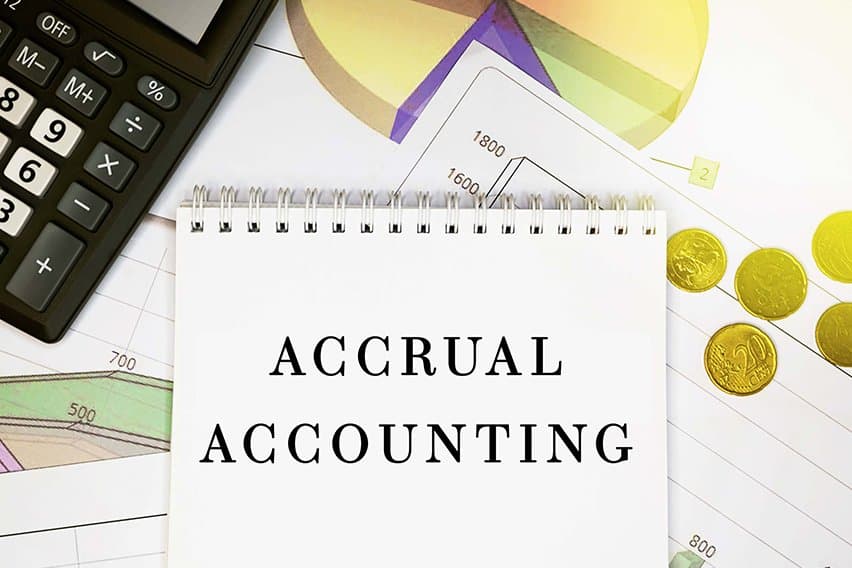What Is Accrual Accounting? Definition & Guide to Its Revenue
Updated on October 29, 2025 | 7 min. read
There can be a lot to consider and take into account when it comes to financial accounting. You want to make sure that you have the proper processes in place to make sure everything is going according to plan. Plus, understanding your financial performance will allow you to make better decisions in the future.
But if you’re not an accountant it can be overwhelming to try and understand everything that goes into financial accounting. And when it comes to financial accounting, accruals are revenues that your business has earned but hasn’t received payment for. It also takes into account expenses that get incurred but haven’t gotten paid yet.
Let’s take a closer look into accrual accounting and how it works.
What Is Accrual Accounting?
There are so many different terms and processes to know when it comes to accounting. So, what exactly are accruals and how do they work? This method of accounting documents and measures your revenues and expenses when they occur.
It’s a generally accepted accounting principle (GAAP). And it provides an accurate picture of your business’ liquidity and your current assets and liabilities. It’s worth noting that accrual accounting is the opposite of cash basis accounting. Cash basis accounting only records financial transactions after payment has happened.
Accrual accounting compares current and expected revenues against current and expected expenses. And this gets done during a specific accounting period. It takes into account things like revenue for services or if you have inventory that’s been exchanged.
This gets done even if your business hasn’t received a cash payment, and it documents your expenses in the same way. These details get recorded on your balance sheet during accounts receivable or accounts payable.

What Are the Advantages of Accrual Accounting?
There can be several benefits of accrual accounting.
- Company finances. It can provide a detailed picture of your finances by providing details of your current financial position.
- Up-to-date expenses. It takes into account your most recent revenue and expenses that have been entered into your cash flow. You get an accurate and current breakdown of your financial standing.
- Business growth. It can help your business grow from a small company to a large one. Companies that earn over $25 million annually have a requirement to use accrual accounting. Whereas small businesses can choose which accounting method works best for their situation. If you have plans of growing and expanding, using accrual accounting from the start can help eliminate the need to adjust as you move forward.
What Are the Disadvantages of Accrual Accounting?
While there are several advantages to accrual accounting, there are also some disadvantages to know about.
- It can get complicated. Accrual accounting is a little more complex compared to cash accounting. Keeping track of invoices and expenses can be time-consuming and tedious. Plus, it can sometimes require more resources than cash accounting.
- It can inflate your financial standing. You always want to know where your business stands financially. But accrual accounting can give a false impression of your business’ short-time financial position. For example, your balance sheet might have several accounts receivable. This might look as though you have more finances to cover expenses than you actually have in cash.
- Cash flow isn’t always accurate. One of the biggest factors to your revenue is getting paid on time, which is often out of your control. If a client pays their bill late then you won’t have as much cash-on-hand as expected. This might affect your ability to pay your own bills.
What Are the Categories Included in Accrual Accounting?
When it comes to financial accounting, accruals can cover a broad range of revenues and expenses. There are two different types of accruals to know about. These are revenue accruals and expense accruals.
Accrued Revenues
Any work performed = accrued revenue = client pays at a later date
Accrued revenues will either be income or your assets, which includes non-cash assets, that you haven't received yet. If this is the case then you might provide your goods or services on credit.
For example, let’s think of this in terms of electricity consumption. An electricity company provides utilities to their customers who then use that electricity. The meter keeps track of the electricity consumption and the customer gets billed at the end of the billing period. But, the electricity company still needs to pay their employees and take on additional overhead and expenses.
The company needs to wait until the end of the month to receive revenue even though they incur expenses throughout the month. It also needs to make sure that it acknowledges that it’s expecting income in the future.
At the end of the day, this basis of accounting provides a more accurate way for the electricity company to track their financial position. Once they receive payment from their customers or debtors, receivables will go down and their cash account will increase.
Accrued Expenses
Any materials purchased on credit = accrued expense = the company pays at a later date
Accrued expenses happen when you make a business purchase on credit. This would get entered as a liability on your general ledger while acknowledging an obligation to the creditors. It’s basically an expense that has been incurred but hasn’t been paid.
Some of the most common accrued expenses can include interest accruals, supplier accruals and wage or salary accruals.
For example, let’s say you’re an entrepreneur at Company Y and you have one employee named Ashley. Ashley is on a cliff vesting plan and also gets a vesting schedule incentive after five years. She works extremely hard and is incredibly diligent in her job responsibilities.
Things are going well and Ashley receives her cliff vesting bonus. But, she doesn’t receive the bonuses in the form of cash received. Instead, her bonuses have been accruing over time. At the same time, your Company Y has also seen liabilities increase.
Looking at this example from the outside, it shows that your company becomes a debtor to Ashley for those five vested years. When bonuses get paid, they're recorded by debiting liability accounts and crediting your cash account.
Why Does Accrual Accounting Matter?
Accruals add an extra layer of information on top of the accounting information you already have. They can provide a clearer picture of accounting ambiguity when it comes to your liabilities and revenues. Why does that matter? Because you can anticipate revenues while keeping liabilities in check.
Using accruals can help accountants identify and monitor potential problems. These problems could relate to cash flow or profitability issues. Accruals help you find a solution.
What Is Modified Accrual Accounting?
Modified accrual accounting is another accounting method. It takes elements from cash basis accounting and combines them with accrual accounting. But, it doesn’t comply with the generally accepted accounting principles (GAAP). Due to this, a lot of public companies don’t use it.
However, it can still be a powerful financial metric to use. And it is widely used and accepted by many government agencies.
Key Takeaways
It’s worth highlighting the difference between the accrual accounting method and the cash method. Both methods give insights into the performance of your business and your economic position.
But, financial transactions in the cash accounting method happen at the same time a transaction gets made. Whereas financial transactions in accrual accounting occur after they happen. And this is for both credits and debits.
With accrual basis accounting, accountants need to use the accrual method when recording accruals. This method lets the accountant enter the data, adjust it if needed and track it as unrecorded earned expenses and earned revenues. However, the journal entry must get adjusted accurately and systematically. It also must be verifiable.
Using accrual accounting can have several benefits for your business. You get a detailed look into finances and an accurate breakdown of your financial standing. Accrual accounting can also help your business as it grows.
It can get broken into two different categories, accrued revenues and accrued expenses.
Accrued revenues are going to be income or assets, which also include non-cash assets. Accrued expenses get incurred when you make business purchases on credit. This is when you have an expense but haven’t paid for it yet.
The accrual accounting method gives a clear picture of your liabilities and revenues. Knowing this information allows you to make better business decisions. It's a standard accounting practice that lets you better anticipate revenues and keep liabilities in check.
Did you enjoy reading this guide? Head over to our resource hub for more great content!










